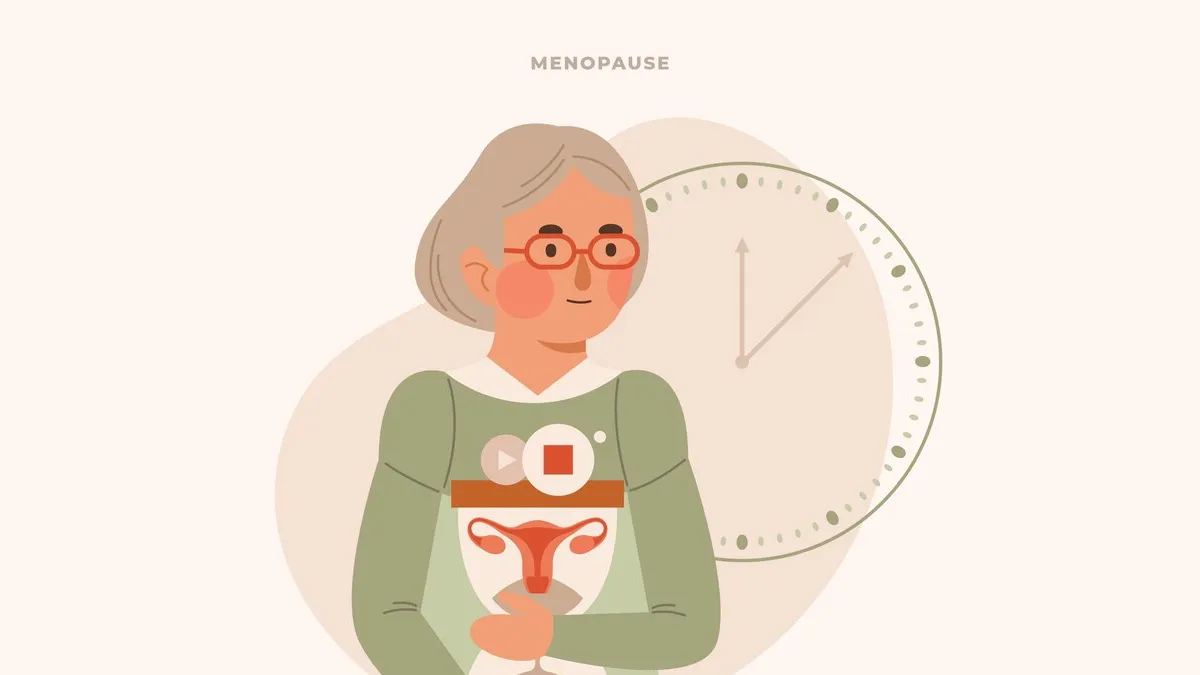
Menopause At 40: Symptoms, How To Manage, And More
Waking up to hot flashes, night sweats, and mood swings, only to discover that menopause has arrived earlier than expected. For many women, menopause at 40, also known as premature menopause or premature ovarian failure (POF), can be a shocking and overwhelming experience. As hormone levels plummet and symptoms intensify, it is essential for you to understand the causes, symptoms, and treatment options available. In this comprehensive guide shared by our expert, Dr Parinita Kalita, Associate Director, Obstetrics And Gynaecology, Robotic Surgery, Gynaecologic Laparoscopy, Max Super Speciality Hospital Patparganj, we will explore the physical, emotional, and psychological impacts of early menopause, and provide expert advice on how to manage symptoms, alleviate discomfort, and thrive during this transitional phase.

Dr Parinita said, "Menopause is a natural stage in life that signifies the end of reproductive years. It is officially diagnosed when an individual has gone 12 consecutive months without a menstrual period. This transition occurs as the ovaries gradually reduce their production of reproductive hormones. While menopause is a normal biological process, it can bring physical and emotional changes that may affect daily life."
Common Symptoms of Menopause
Dr Kalita mentioned that menopause symptoms vary from person to person. While some may experience mild discomfort, others have more intense symptoms. If you are approaching menopause, you might notice some of the following changes:
- Irregular Menstrual Cycles: Your periods may become lighter, heavier, or occur less frequently.
- Hot flashes: You may experience sudden waves of heat that spread across the body, often accompanied by sweating or flushing.
- Night sweats and cold flashes: Temperature fluctuations may end up disrupting your sleep at times.
- Vaginal dryness: You may experience vaginal dryness which can lead to discomfort during intimacy.
- Increased urinary urgency: You may also feel the need to urinate more frequently.
- Sleep disturbances: Difficulty falling or staying asleep (insomnia).
- Mood changes: Irritability, mood swings, or feelings of anxiety, and depression.
- Dry skin, eyes, or mouth: Reduced moisture in different areas of the body.
- More severe premenstrual symptoms (PMS): Heightened sensitivity before periods stop completely.
- Breast tenderness: Increased sensitivity or soreness.
1
2
3
4
“The duration of menopause symptoms can vary,” said Dr Parinita. She mentioned that some individuals experience them for a few years, while others may have symptoms for up to a decade. On average, these symptoms last about seven years.

How is Menopause Diagnosed?
Dr Kalita shared, “Menopause is usually identified based on a person’s medical history, particularly changes in the menstrual cycle. If 12 consecutive months have passed without a period, menopause has officially occurred, and the individual is considered postmenopausal.”
Don't Miss: Asthma and Pregnancy: Gynaecologist Shares What Expectant Moms Must Know
While menopause is typically diagnosed based on symptoms and menstrual history, doctors may order blood tests to check hormone levels in certain cases. However, hormone levels fluctuate significantly during perimenopause, which can make test results less reliable. Blood tests are usually only recommended if a healthcare provider suspects an underlying condition that may be causing menopause-like symptoms.
Managing Menopause Symptoms
"Menopause is a natural life transition, and while symptoms can be uncomfortable, there are various ways to manage them. Lifestyle changes, hormone therapy, and alternative treatments can help alleviate discomfort and improve quality of life. Consulting a healthcare professional can provide personalised guidance on navigating this stage effectively," shared the expert.
Don't Miss: Should You Shave Your Pubic Hair During Pregnancy? Gynecologist Shares Dos And Don'ts You Must Follow
If you liked this story, then please share it. To read more such stories, stay connected to HerZindagi.
1
2
3
4